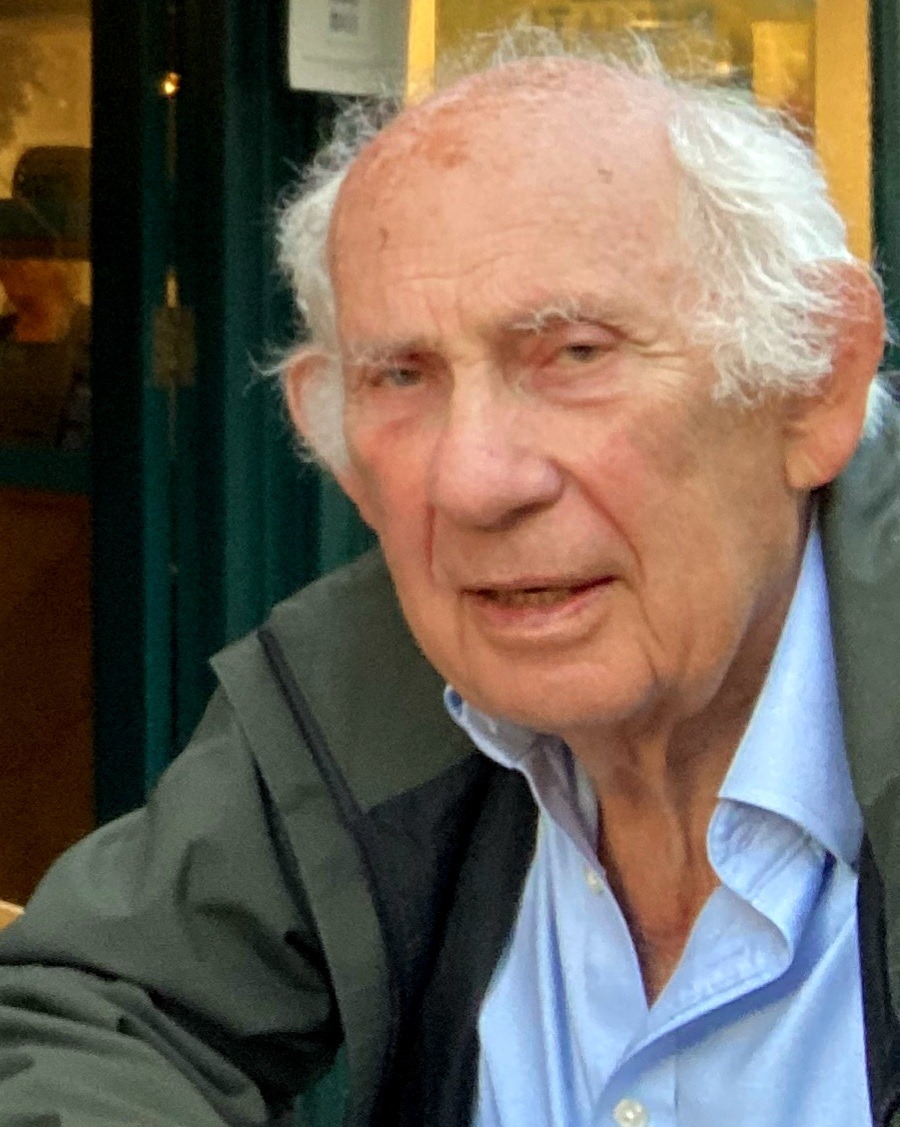Obituary: Emeritus Professor Rodney Livingstone 1934 – 2023

We are sad to announce that our former colleague, Rodney Livingstone, died on 16 December, just two months short of his 90th birthday. He made an enormous contribution to the intellectual life of the University and to the international reception of German literature, philosophy, sociology, history and culture. He will be greatly missed by his family, friends and colleagues, and warmly remembered by generations of grateful students.
Rodney was born into a Jewish family in north London in 1934. His childhood was disrupted by the outbreak of the Second World War and in September 1940 his mother took him and his sister Shirley on one of the last passenger ships out of Britain to sit out the war with family in Baltimore. From this American sojourn, he gained an occasional transatlantic inflection in his speech as well as a penchant for the songs of the American South and a life-long admiration for the US (albeit somewhat qualified in recent years).
Returning to the UK after the war, Rodney attended St Albans Grammar School and was awarded a rare State Scholarship to study modern languages at Cambridge, an experience that he found socially alienating but intellectually exciting. Here he met his first wife Angela Hobbs and in 1959 they moved to Australia, where Rodney taught first at the University of Adelaide and then at Monash University in Melbourne. In 1966, Rodney was appointed to a lectureship in the German Department at Southampton, where he spent the rest of his career, retiring as Professor of German in 1999 in what by then had become the School of Modern Languages. He married Krystyna Brzezinski, an interpreter and translator, in 1972.
Many glowing tributes have been paid to Rodney since he died. Friends have praised the exceptional breadth and depth of his knowledge, recalled many inspiring conversations and expressed their admiration for his integrity, kindness, generosity, graciousness and, not least, his erudite wit and lively sense of humour. As a teacher, he was the model of brevity and clarity. Students revered him for his wisdom and scholarly authority, and because he was patient, kind, considerate and conscientious.
As one colleague succinctly observed, Rodney was the epitome of the European intellectual. His expertise extended well beyond the vast field of modern German literature and thought and, in the words of another colleague, he was the embodiment of the Geist of a School of Humanities – a German term that is the bane of translators: it can mean mind, spirit, soul, intellect, genius or ghost. Being Jewish was very important to him and he frequently reflected on the vicissitudes of his family’s experiences and those of other British Jews. His personal background fostered a keen interest in Jewish history and thought, and he was a regular and highly valued participant in the activities of the Parkes Institute.
While he produced significant publications on major German writers such as Erich Kästner and Bertolt Brecht, his reputation and his legacy derive overwhelmingly from his many substantial translations of philosophers and sociologists beginning with his translation of Lukács’s History and Class Consciousness in 1967, and including Marx, Weber, Benjamin, Horkheimer, Habermas, and especially Adorno. He made a crucial contribution to the better understanding of the Frankfurt School of thinkers in the Anglophone world. Through his contributions to debates in political and cultural theory, and philosophy, the work of major thinkers became far more accessible to Anglophone scholars. He was an outstanding translator, capable of adding clarity and eloquence in a highly readable English, while remaining faithful to the original. In 2009, he was awarded the prestigious Ungar German Translation Prize of the American Translators Association for his translation of Detlev Claussen’s Theodor W. Adorno: One Last Genius .
In his retirement, Rodney remained an assiduous and prolific translator of important and challenging scholarly writing. The sheer range of his projects is breathtaking and demonstrates his exceptional intellectual curiosity and engagement with multiple strands of research: he translated works by early film theorist Béla Balázs, sociologist Ulrich Beck, cultural theorist Jan Assmann and feminist and Marxist critic Frigga Haug. Well into his 80s, during the Covid pandemic, he took on one last substantial commission, translating historian Karl Schlögel’s monumental The Soviet Century: Archaeology of a Lost World. Praised for its elegance, this final translation appeared just a few months before Rodney died.
Rodney is survived by Krystyna, his children Sonia, Ben and Judith and six grandchildren. Sonia describes him as ‘a curious pessimist: keen to enjoy life’s pleasures (he loved music, wine and travel) yet always expecting the worst’. This paradox gave a very particular flavour to his conversational style that was infused simultaneously with gloom and wit. He also had a crucial attribute for a skilled raconteur: a prodigious memory. Every anecdote was peppered with faultlessly delivered quotations from the most diverse sources and it was always a pleasure and a joy to be in his company.